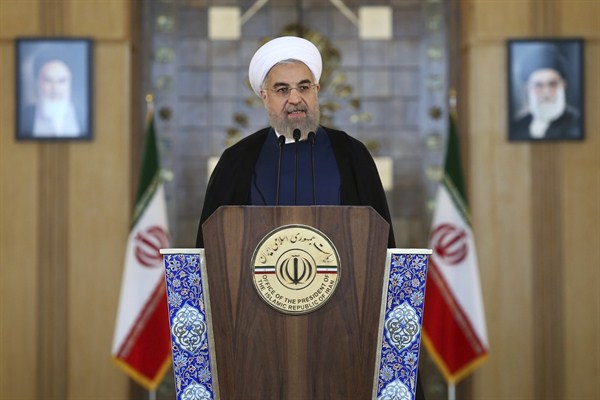As the debate over the Iran nuclear deal begins in Congress, many of the arguments against the agreement reached by the U.S. and its P5+1 partners—France, the U.K., Russia, China and Germany—and Iran have taken on the appearance of theological opposition, where nothing short of full capitulation by the Iranians would satisfy critics. Other critiques have exaggerated the deal’s likely impact on the region or portrayed it in a distinctly one-sided manner. Furthermore, almost all of the deal’s critics have ignored the geopolitical impact it will have beyond the region, thereby overlooking a key benefit that advances U.S. interests—namely vis-a-vis Russia—that are as important as counterbalancing Iran’s regional influence, if not more so.
To be sure, there are areas in which, in an ideal world, the deal would have been improved, notably with regard to the time period for access to undeclared sites where nuclear activity is suspected of taking place. But on the whole, it is technically solid in terms of the central issues it needed to address to rule out the pathways to an Iranian nuclear bomb with the necessary degree of confidence. Moreover, while it is possible that the U.S. might have succeeded in toughening the deal around the margins with a harder negotiating line, it is by no means certain.
And even if a better deal might have been possible, the maximal zero-enrichment standard advanced by some critics was always unrealistic, for the simple reason that, while it is possible to negotiate with one’s adversaries, the same cannot be said of the forces of history. The trajectory of the past 10 years made a deal almost inevitable for both sides, as Shai Feldman and Ariel Levite argue convincingly—no amount of bluffing could hide that fact.

